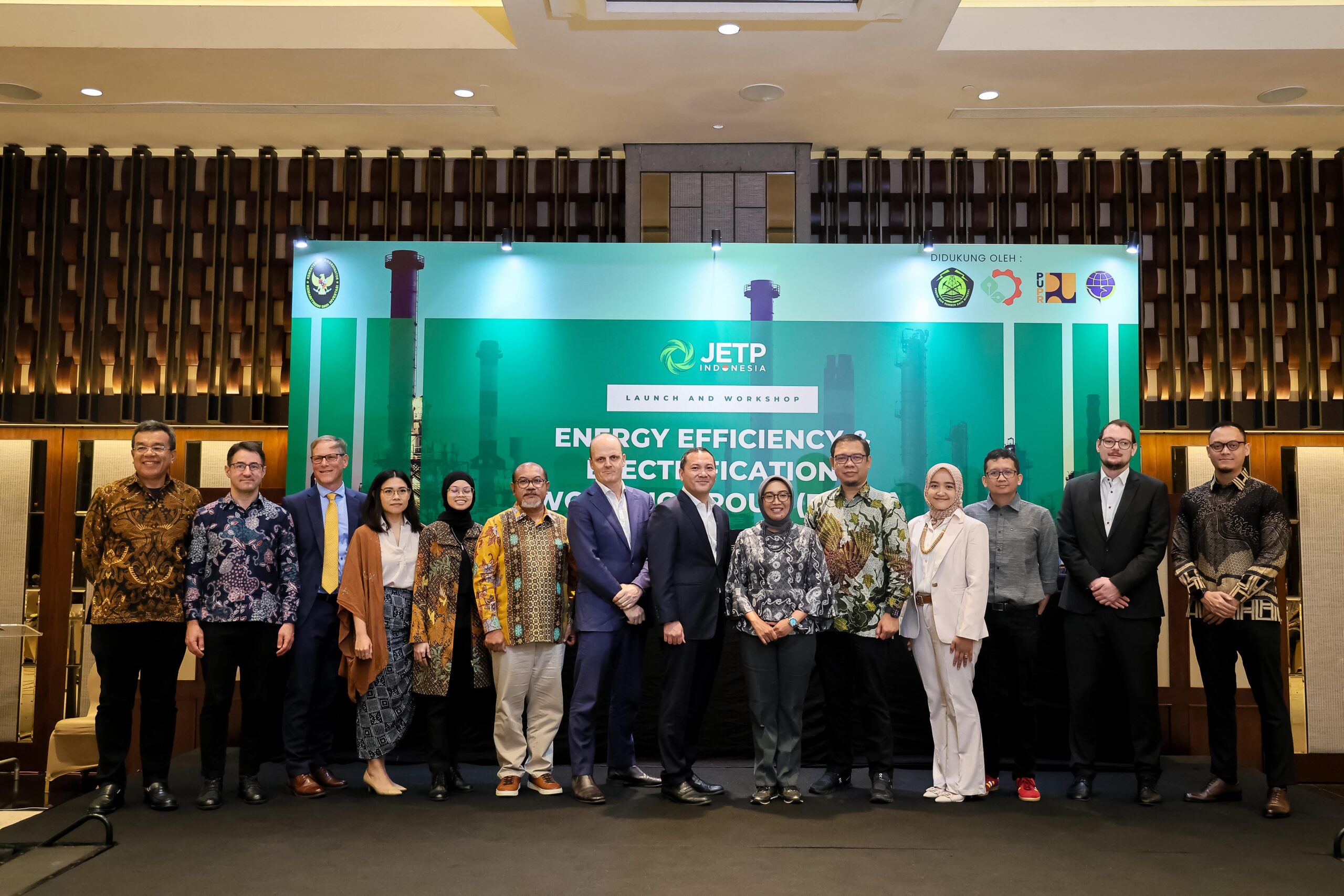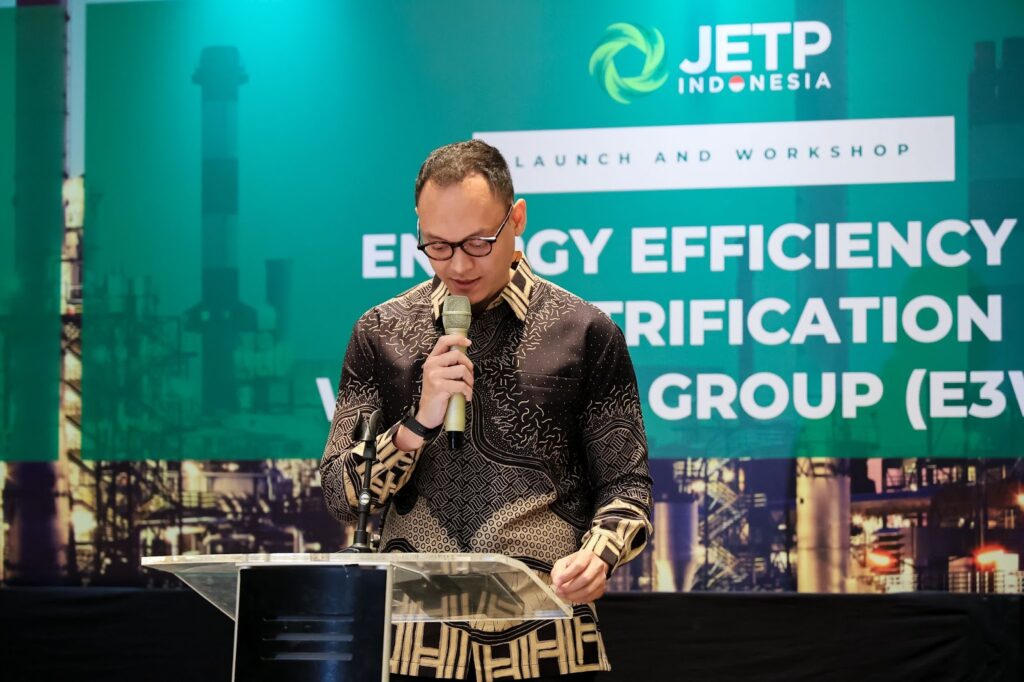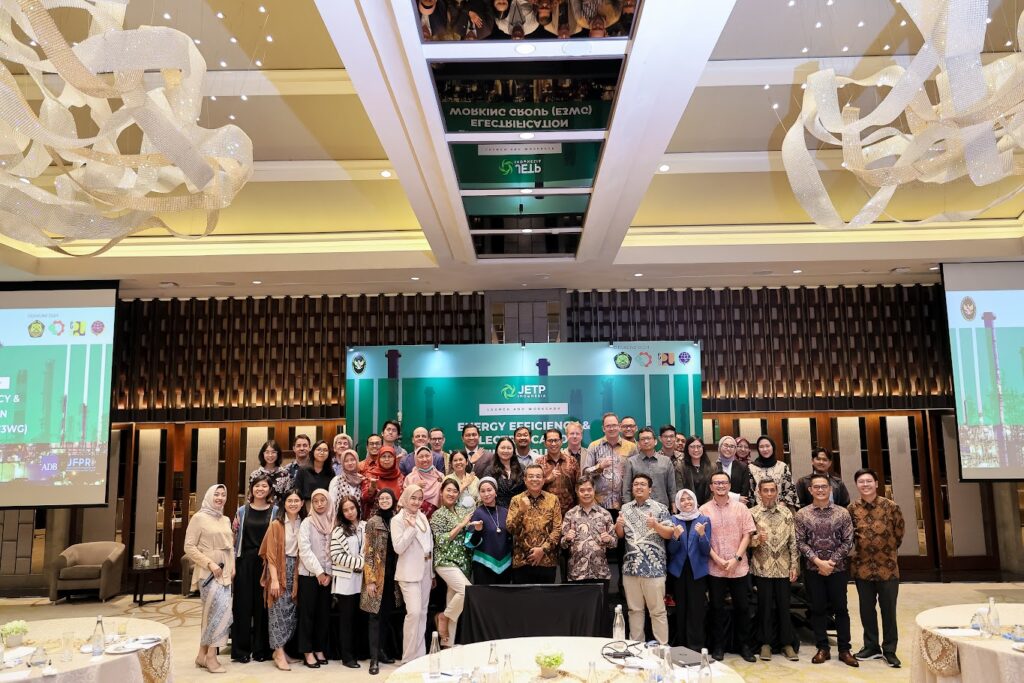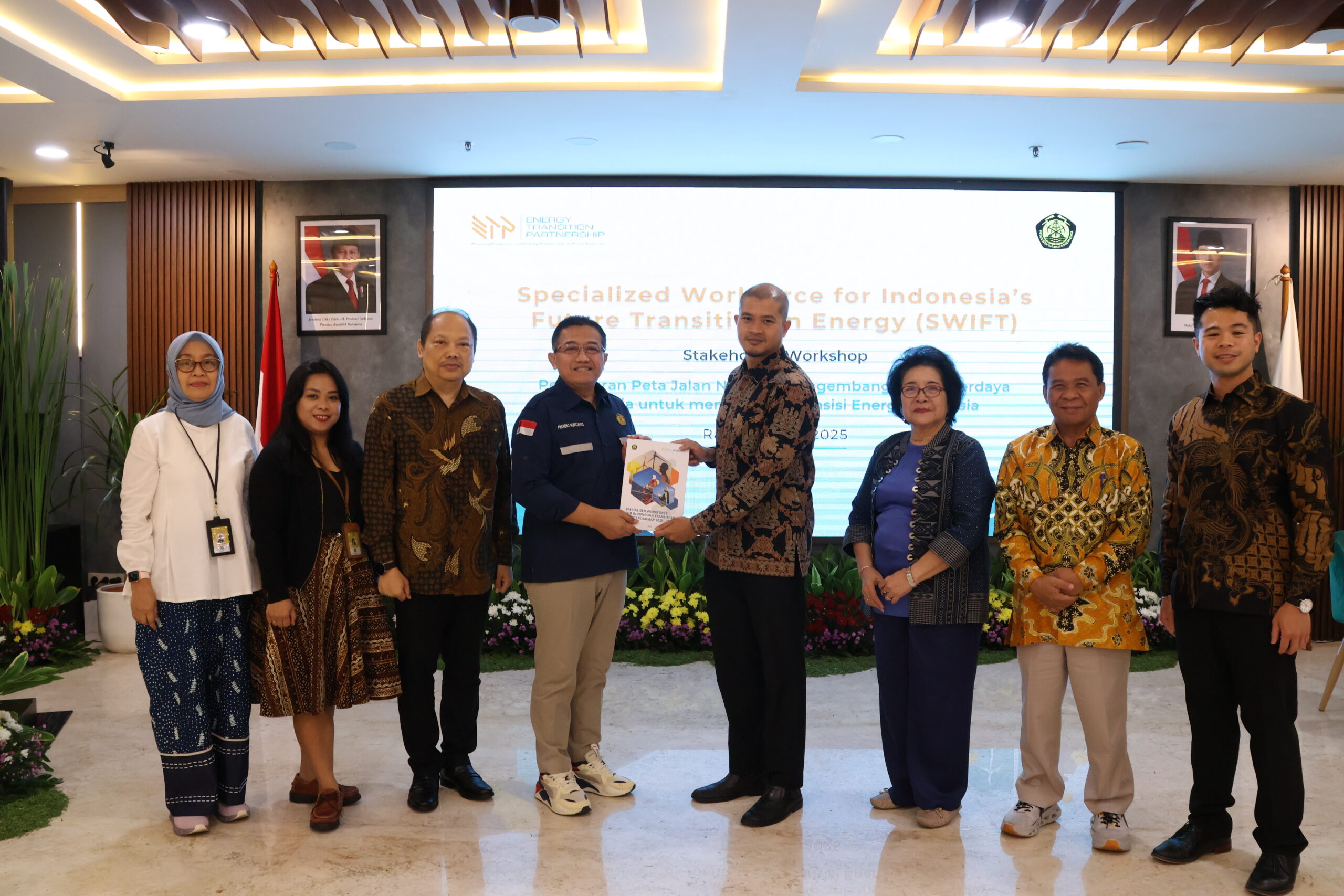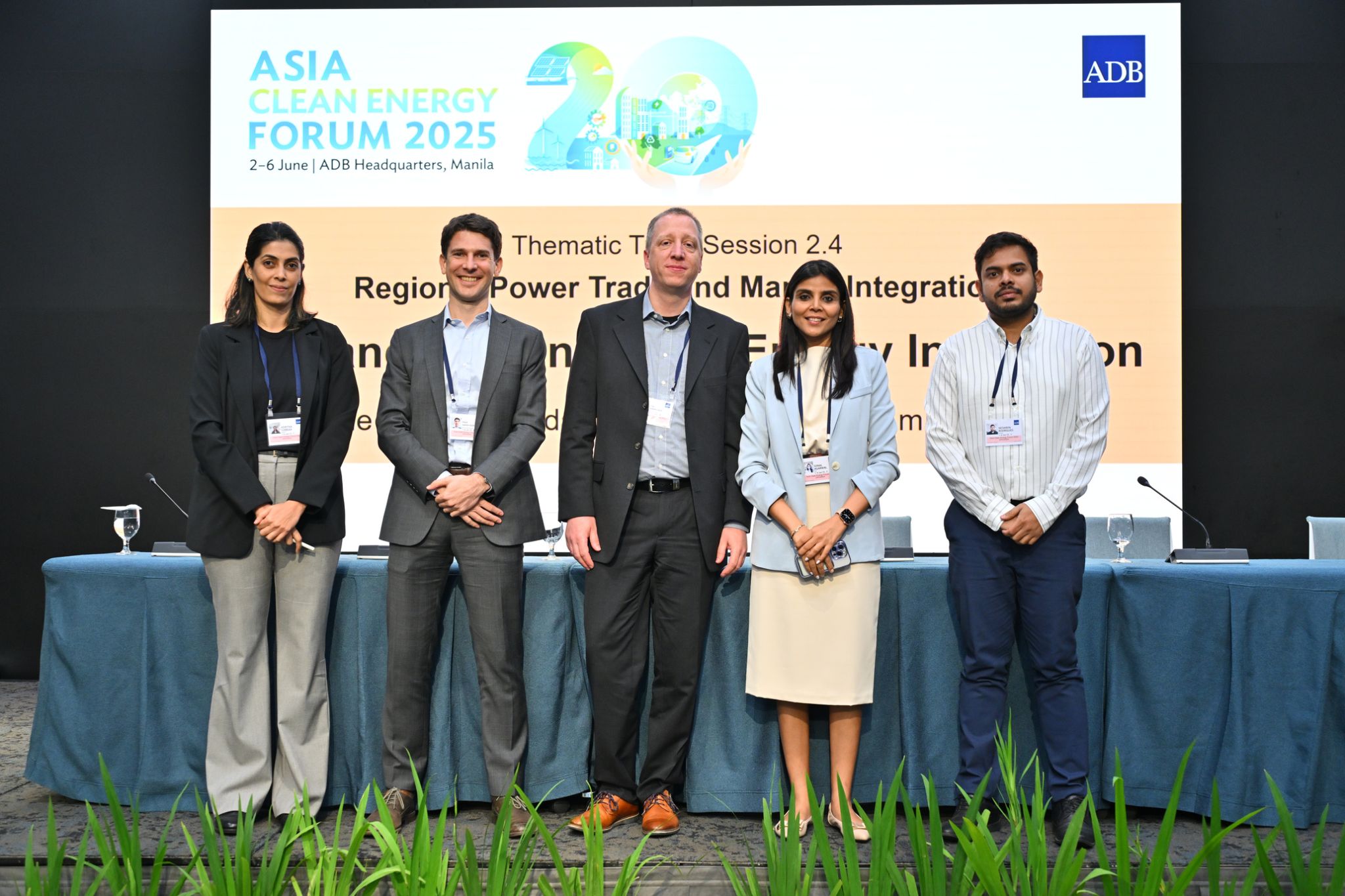On May 28th, 2024, the Just Energy Transition Partnership (JETP) initiative launched its fifth working group, the Energy Efficiency and Electrification Working Group (E3WG). Focused on promoting these efforts within Indonesia, the launch event attracted 293 participants (both in-person and virtual) from government entities, private sectors, IPG countries, state-owned enterprises, civil society organizations, and academia.
ETP, alongside key government officials, delivered opening remarks. ETP, as the lead of the E3WG, presented the group’s role, goals, and scope of work. Partner organizations include the International Energy Agency (IEA), INDODEPP, World Resources Institute (WRI), Net Zero World Initiative (NZWI), and Pusat Studi Energi Universitas Gajah Mada (PSE UGM).
Following the launch ceremony, four panel discussions delved into specific topics: financing, industry and supply-side efficiency, buildings and appliances, and transportation sector electrification.
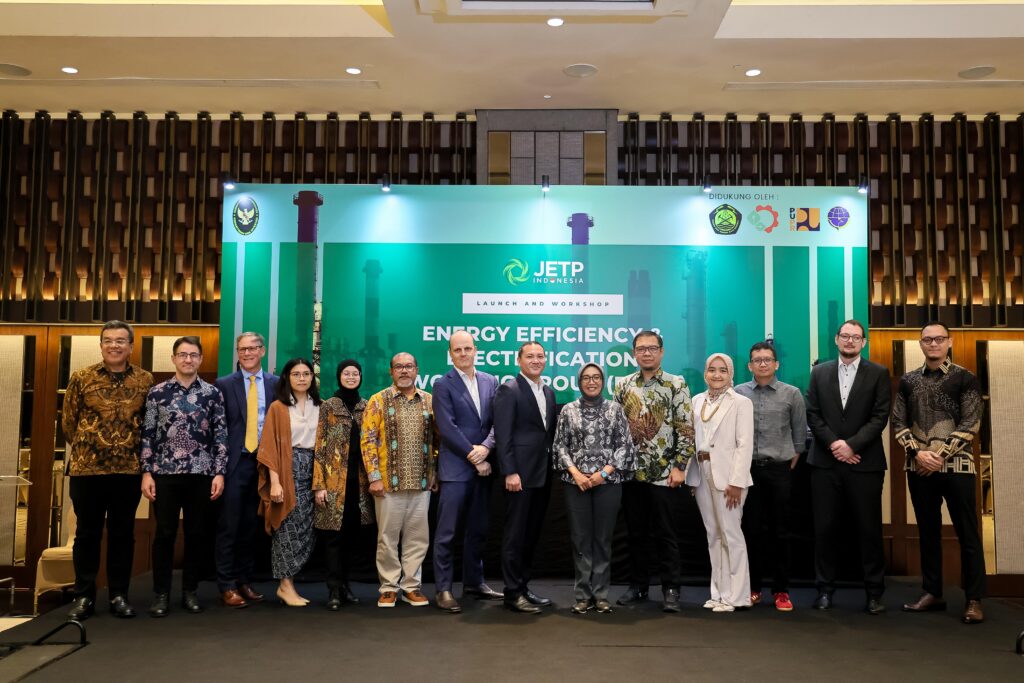
An overview of the key discussion points of the four sessions are as follows:
SESSION 1 – FINANCING
To achieve the Government of Indonesia’s (GOI) ambitious Net Zero Emissions (NZE) roadmap targets, a diverse range of financing models are crucial for supporting Energy Efficiency and Renewable Energy (EE&E) projects.
The Ministry of Energy and Mineral Resources (MEMR) has recognized this need and is actively exploring various financing mechanisms to provide the necessary support. One promising approach is the piloting of an Energy Efficiency Guarantee Scheme within Indonesia. Furthermore, the Financial Services Authority (OJK) has published a sectoral book series specifically focused on Sustainable Finance, demonstrating a commitment to advancing green finance initiatives. Additionally, PT SMI, a national development finance institution, has emphasized the importance of bolstering support for innovative business models that promote energy efficiency
SESSION 2 – BUILDING AND APPLIANCES
The Ministry of Public Works and Housing (MPWH) is setting a greenhouse gas (GHG) emission reduction target to align with the national Climate Change Mitigation Action Plan. This initiative focuses on improving energy efficiency in buildings and appliances, a critical area for achieving their emission goals. The private sector is seeking government and bank support to incentivize green building practices. Additionally, regulations and awareness campaigns are seen as necessary to transform the market towards more sustainable construction practices.
SESSION 3 – INDUSTRY AND SUPPLY-SIDE EFFICIENCY
As Indonesia works towards stricter decarbonization goals, increasing access to climate finance and sustainable investment is crucial for industries. Additionally, decarbonization policies need to complement programs that improve product competitiveness. The Ministry of Energy and Mineral Resources (MEMR) has taken steps to address efficiency through regulations (MEMR Regulation No. 9/2020) and roadmaps (Roadmap for Power Generation Efficiency and Roadmap for Distribution and Transmission Losses).
SESSION 4 – TRANSPORTATION
Indonesia’s Ministry of Transportation is developing an E-mobility plan focused on expanding electric public transportation beyond the existing Transjakarta network. This plan, with support from the Central Government, aims to leverage the success of electric bus trials conducted by PT Transjakarta. Those trials showed electric buses exceeding expectations in terms of performance and efficiency. Additionally, an EV readiness program (ENTREV) indicated that electric two-wheelers (E2W) could be cost-competitive with gasoline alternatives sooner than electric four-wheelers (E4W).

